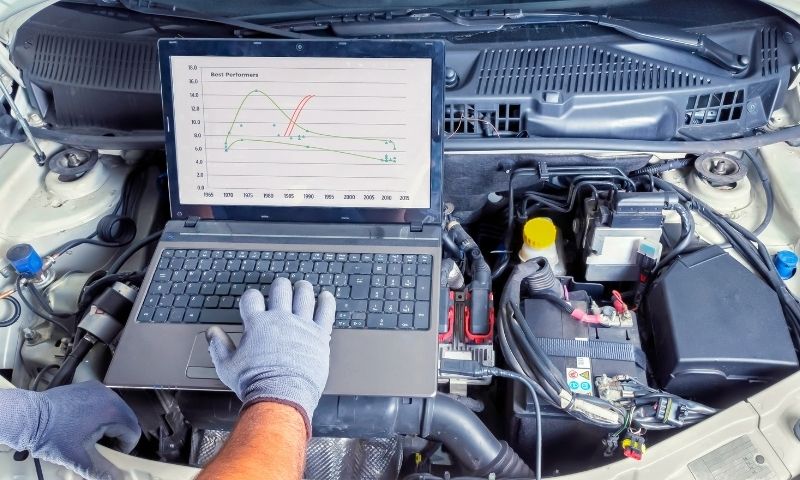A Leading Resource Built By Automotive Lovers, For Automotive Lovers.
We’ve helped consumers around the world make their purchasing decisions.
Latest Articles
A car battery warranty typically lasts between 2 and 5 years. Coverage often includes either 24 months or 36,000 miles. Check your warranty manual for specific terms. Warranties may be… A battery charger for a 2-ton car typically needs about 500 watts. For a 12V battery, select a charger rated between 10-30 amps. This ensures efficient charging with minimal heat…. A standard 12-volt car battery typically provides 4000 to 8000 watts when fully charged. This wattage depends on the battery’s ampere capacity. Knowing these values helps you understand the energy… To charge a 12-volt car battery with an 80 amp hour capacity, you need approximately 960 watt hours. Considering 20% charging inefficiency, you require about 1150 watt hours. A 5… A trickle charge needs a voltage of 13.2 to 13.4 volts. This low voltage helps the car battery maintain charge safely without overheating. Use a current in the milliamperes range… A brand new car battery should measure about 12.6 volts when fully charged. Its voltage can range from 12.4 volts under load to 14.4 volts when the engine runs. This… A car battery typically produces between 12.6 and 14.5 volts. When the engine is off, a fully charged battery shows a resting voltage of 12.6 volts. When the engine runs,… A car battery typically charges at 12.6 to 14.4 volts. When the engine is off, a fully charged battery has a resting voltage of 12.6 volts. While the engine is… A regular car battery typically operates at 12 volts. Its voltage ranges from 12.6 volts when fully charged to about 14.4 volts when the engine is running. A fully charged… A discharged car battery usually shows a voltage of 12.0 volts or lower. At 12.1 volts, the battery is about 50% charged. At 11.7 volts, it is roughly 25% charged…. A medium range car battery typically operates between 12.6 and 14.4 volts. When the engine is off, a fully charged battery shows 12.6 volts, which is its resting voltage. While… A car battery can handle about 10 starts without recharging. Key factors include battery condition, the charging system, and electrical draws. Modern cars may need 150-350 amps to start. Frequent… A car battery’s lifespan depends on its age, cranking amps, and usage. A new, high-quality battery can handle about 50 full drain cycles in ideal environmental conditions. Frequent drains, especially… A standard 12-volt car battery has an internal resistance of about 0.02 ohms. This resistance impacts performance, efficiency, and lifespan. Various factors, such as temperature and battery condition, can cause… An electric vehicle battery usually lasts for 1,000 to 1,500 charging cycles. Each cycle is one complete charge and discharge. Driving habits influence battery longevity; aggressive driving can reduce the… To recharge a car battery, the engine must run at a minimum of 1000 revolutions per minute (RPM). At this speed, the engine generates enough voltage to charge the battery…. To recharge a car battery after a jump-start, run the vehicle for at least 30 minutes. This duration helps the alternator recharge the battery properly. The battery capacity and overall… An electric car usually travels 200-250 miles on a full charge. Some high-end models can go up to 600 miles. Fossil fuel cars have unlimited range with refueling. A dead… To fully recharge a car battery, it generally takes around 30 minutes of driving at highway speeds. The average charge duration may vary by vehicle type and the battery’s condition…. Car batteries vary in capacity from 30Ah (30,000mAh) for small cars to 70Ah for larger ones. The charging rate depends on the charger type. A 10Amp charger can fully charge… A standard car battery has a capacity of at least 70 amp-hours, which is 70,000 mAh. Car batteries are rated by ampere hours, not mAh. Charging time depends on the… To charge a dead car battery, drive for at least 30 minutes at highway speed for moderate battery discharge. If the battery is severely discharged, you may need to drive… A car battery typically takes 24 hours to trickle charge at 2 or 3 amps if it is not completely dead. For a dead or very low battery, allow up… To charge a car battery, the required kilowatts depend on its capacity. For instance, a 100 kWh battery needs about 100 kW to fully charge in one hour. Factors like… A Nissan Leaf battery pack has 48 modules. Each module includes 4 cells, with a capacity of 30Ah and a voltage of 3.8V. They are configured in a 2S2P setup,… To fully charge a dead 48 amp-hour lead-acid car battery using a 2 amp charging current, it takes about 24 hours. This estimate comes from dividing the battery capacity (48… The average life of a car battery is 3 to 5 years. This lifespan varies based on factors like weather conditions and driving habits. Batteries tend to last longer in… A lithium-ion car battery typically lasts for 1,500 to 2,000 charge cycles. With proper usage conditions and maintenance, it can reach up to 5,000 cycles. The battery’s cycle count correlates… A standard car battery holds about 1 to 2 gallons of fluid. This fluid is mainly made up of sulfuric acid and de-ionized water. For proper battery maintenance, check the… The Nissan Leaf battery pack contains 48 modules. Each module has 4 cells, resulting in a total of 192 cells per battery pack. Each cell features a capacity of 30Ah…Car Battery Warranty: How Many Years of Coverage and Key Conditions Explained
Battery Charger Wattage for 2 Ton Cars: Optimal Size and Recommendations
How Many Watts in a Standard Car Battery? Average Power Output and Usage Explained
How Many Watts to Charge a Car Battery Efficiently: Power, Time, and Methods
Trickle Charger Output Voltage: How Many Volts to Charge a Car Battery?
New Car Battery Voltage: How Many Volts Should a Brand New Car Battery Have?
How Many Volts Should a Car Battery Charge Produce for Optimal Battery Health?
Car Battery Voltage: How Many Volts Is a Car Battery Charged At? Everything You Need to Know
How Many Volts is a Regular Car Battery? Everything You Need to Know About Voltage
Discharged Car Battery: How Many Volts Are Normal for Battery Health?
Medium Range Car Battery Voltage: How Many Volts Are Normal and What’s Bad?
How Many Starts Will Drain a Car Battery? Key Factors That Cause Battery Drain
How Many Times Can You Drain a Car Battery Without Killing It?
How Many Ohms in a Standard Car Battery? Internal Resistance and Testing Tips
Electric Car Battery: How Many Recharge Cycles for Optimal Lifespan? Tips Inside
How Many RPM Do You Need to Efficiently Recharge Your Car Battery While Driving?
How Many Minutes to Recharge Car Battery: Step-by-Step Driving Tips for Optimal Charge
How Many Miles Will a Fully Charged Car Battery Go? Driving Distance Explained
Charging a Car Battery: How Many Minutes After Jumping It While Idling? Tips Inside!
How Many mAh Are Needed to Charge a Car Battery: A Step-by-Step Guide
How Many mAh to Charge a Car Battery: Capacity, Charge Time, and More Insights
How Many Miles to Drive to Charge a Dead Car Battery and Re-energize It?
Trickle Charging a Car Battery: How Many Hours to Properly Charge and Prevent Damage
How Many Kilowatts to Charge an Electric Car Battery Efficiently and Cost-Effectively?
Nissan LEAF: How Many Battery Modules Power Your Electric Vehicle?
Charging a Dead Car Battery: How Many Hours with a 2 Amp Charger?
Car Battery Life: How Many Hours Do They Last? Tips to Extend Battery Life
How Many Charge Cycles Are in a Car Battery? Insights on EV Battery Lifespan and Capacity
How Many Gallons of Fluid in a Standard Car Battery? Essential Maintenance Tips
Nissan Leaf Electric Car Battery: How Many Cells and Their Structure Explained



